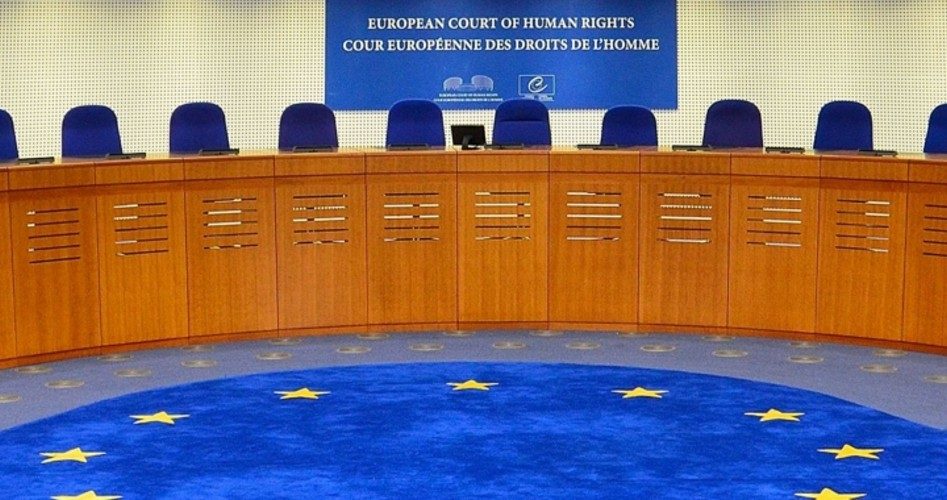
The European Court of Human Rights (ECHR) has refused to take up the case of two Swedish midwives who have been denied employment because they refuse to assist abortions, Brietbart News reports.
Under Swedish law, midwives are required to take part in abortions, but pro-life nurses Linda Steen and Ellinor Grimmark contend the requirement is in violation of their freedom of conscience and assert the policy amounts to discrimination against their Christian faith and opposition to abortion.
According to group Scandinavian Human Rights Lawyers, which represented the women in their case, Sweden’s requirement that midwives must agree to participate in abortions not only violates the women’s freedoms but also “international ethical codes such as the International Code of Ethics for Midwives and the Code of Ethics of the International Gynecologist Association.”
Despite this, several Swedish courts ruled against the two nurses before their case reached the ECHR. In its refusal to hear the case, the ECHR reasoned, “Sweden provides nationwide abortion services and therefore has a positive obligation” to ultimately ensure the “exercise of freedom of conscience” does not conflict with abortion rights.
The court added, “The requirement that all midwives should be able to perform all duties inherent to the vacant posts was not disproportionate or unjustified.… In the present case, the applicant had voluntarily chosen to become a midwife and apply for vacant posts while knowing that this would mean assisting also in abortion cases.”
By declining the case, the ECHR affirms the decision of the lower courts, thus ending the women’s six-year legal battle.
The court’s position seems to echo statements made by the United Nations’ Special Rapporteur on Freedom of Religion or Belief, Ahmed Shaheed, who recently spoke out against the use of conscientious objection as it pertains to abortion rights, the Christian Post reports.
“The Special Rapporteur notes that in a number of countries around the world, governments continue to maintain partial or total bans on access to abortion, and religious figures have both encouraged these measures and advocated against efforts to reform the laws,” Shaheed said in a report. “One area of particular concern regarding accommodations to national law for religious beliefs is the use of conscientious objection by healthcare providers and institutions unwilling to perform abortions or provide access to contraception on religious grounds.”
In a prepared statement following the ECHR’s decision, Alliance Defending Freedom International — which has supported the pair in their legal battle — contends Sweden is out of touch with the rest of Europe.
“Medical professionals should be able to work without being forced to choose between their deeply held convictions and their careers,” Robert Clarke, deputy director of Alliance Defending Freedom International, said. “Although freedom of conscience is protected as a fundamental right in almost every other European country, the decision today marks a missed opportunity to uphold this important protection in Sweden.”
Grimmark made a similar observation, underscored by her ability to work as a midwife in Norway, where she moved with her husband and two children years ago to work freely as a midwife.
She said after ECHR’s decision, “I am able to work as a midwife in Norway, where freedom of conscience works so well. It is a pity that Sweden, which needs all the midwives it could possibly get, now excludes competent midwives from delivery care. This means that delivery care and patient safety are affected negatively. There should be room for all opinions in a democratic society.”
Decision magazine reports Steen has also been working as a midwife in Norway, where she has been able to operate without government interference or intrusion from the medical community.
Predictably, the ECHR decision was applauded by the pro-abortion group RFSU, the Swedish Association for Sexuality Freedom.
“It is not a human right for nursing staff to refuse to provide care,” said Hans Linde of RFSU. “This is an important decision that in the long term will help to protect women’s health, right to good quality care and to be treated with respect when seeking an abortion.”
This is not the first time midwives have taken legal action to object to being forced to supervise abortions, Life News observes.
In 2014, Scottish midwives Mary Doogan and Connie Woods took their fight to the Supreme Court of Scotland on consciousness objection grounds. Unfortunately, their seven-long legal battle ultimately ended in loss. According to the deputy president of the Supreme Court, Lady Hale, supervising abortions is among the “managerial and supervisory tasks carried out by the labour ward.” The ruling ultimately forced the midwives into early retirement.
Image: Adrian Grycuk / Wikimedia Commons
Raven Clabough acquired her bachelor’s and master’s degrees in English at the University of Albany in upstate New York. She currently lives in Pennsylvania and has been a writer for The New American since 2010.



